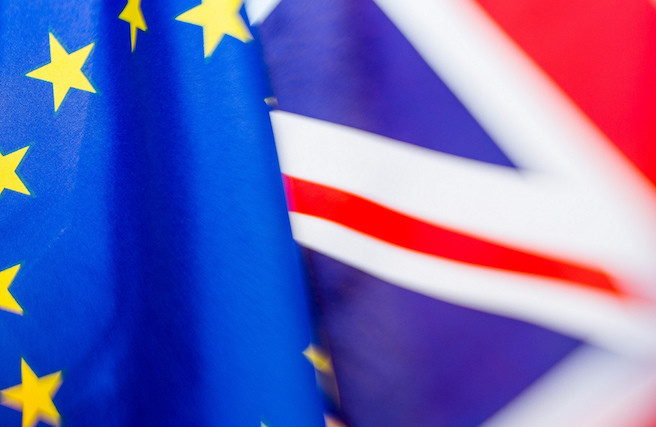These papers only deal with the availability of goods placed on the market before the withdrawal date, in March 2019. Any goods placed on the market after that date will probably be under any transitional agreement, if one is agreed. After that, a new trade deal will regulate access and availability. Much of the content overlaps with that in the commission’s paper.
The paper emphasises the enormous trade surplus the EU member states currently have with the UK to put pressure on the European commission, stating that “EU goods exports to the UK amounted to €314 billion in 2016; more than EU goods exports to Brazil, Russia, India and China combined,” and that “in 2016, the EU exported €126 billion of consumer goods to the UK and imported €62.3 billion of UK consumer goods.”
It also hints again at several other bespoke deals, such as the one with Switzerland and China, but insists that the future partnership between the UK and the EU “will be unlike any other existing arrangement.”
The British government urges the European commission that goods placed on the single market before exit should continue to circulate freely in the UK and the EU to “avoid any disruption during the move to the future partnership.”
The UK paper sets out several positions: to recognise the common regulatory systems, to have continued mutual access to information on unsafe products by market surveillance and enforcement authorities, continued oversight of goods and the validity of compliance activities, to include goods which placed on the market before the withdrawal date but which cross the EU-UK border after exit, and to include services related to goods.
The paper states:
“where goods are supplied with services, there should be no restriction to the provision of these services that could undermine the agreement on goods.”
Services related to goods are not mentioned in the paper by the European commission.
The paper is in line with the other two previous papers on the customs union and on Northern Ireland and the republic of Ireland, which all favour the status quo of UK-EU relations. However, Michel Barnier, the official EU negotiator of Brexit, has repeatedly stated that trade, contrary to the UK government’s assertions, will never be as frictionless as it is now.
The British government has also published a position paper on confidentiality and access to documents on Monday 21 August.
It will publish further position papers in the hope to move discussions beyond the divorce settlement towards new trade agreements and undermine the unity of remaining EU 27 member states.
Michel Barnier only has the mandate on the technical issues such as citizens’ rights, the situation between Ireland and Northern Ireland, and the divorce bill. Once sufficient progress has been made, talks on issues such as a new customs arrangement or the availability of goods and a new trade agreement can start, according to the timeline agreed by the European council, commission and parliament.
